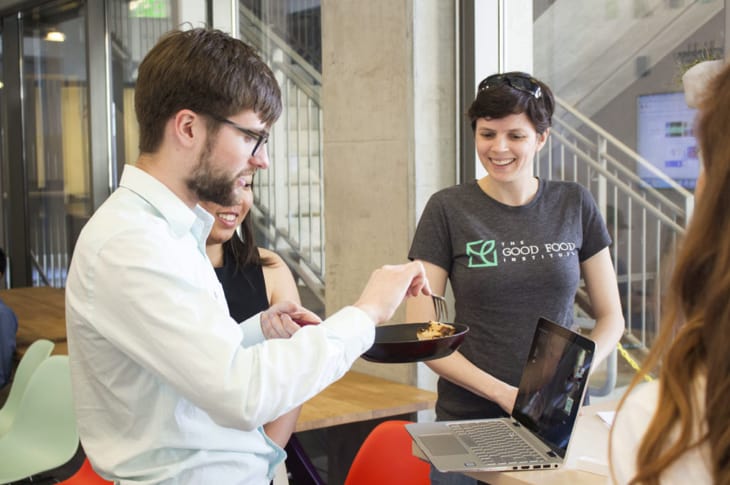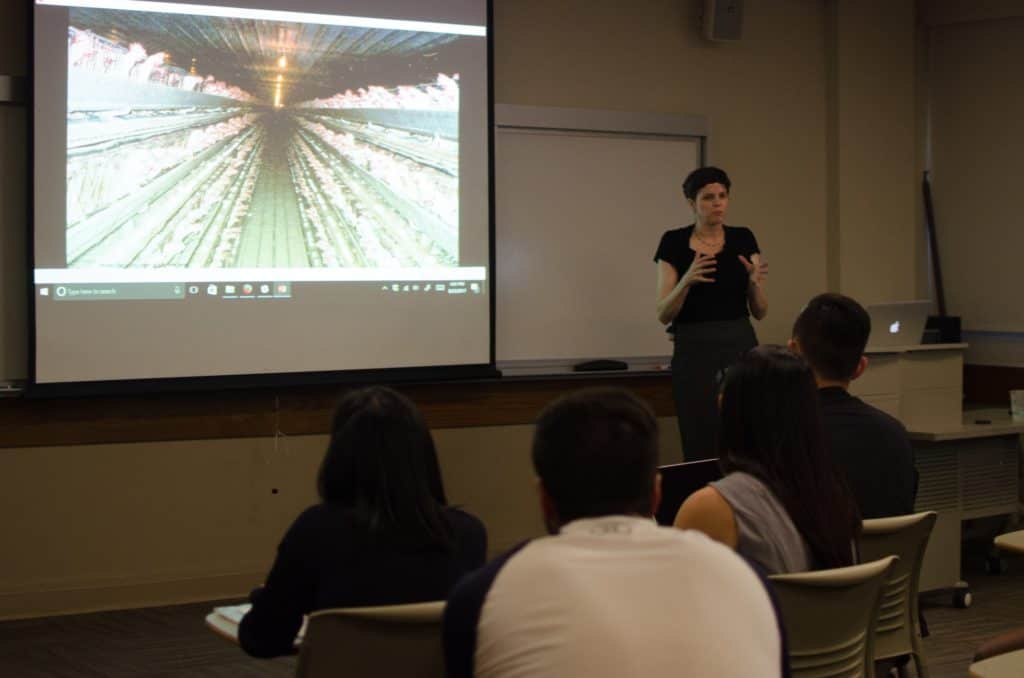
The University of California, Berkeley has struck again in their effort to be a hub for progress with the recent opening of their Alternative Meats Lab, which is currently offering its second course to students to make plant-based meats. As the demand for alternatives to meat in America rises, the university saw the need to be at the forefront of change by offering a spring course designed to teach students how to make their own plant-based meats. Since the class proved to be so popular, the college not only brought it back for fall this year but they also opened up the Alternative Meats Lab to further their mission.
The lab is located in the Sutardja Center for Entrepreneurship and Technology, which is very fitting for this type of work. The students taking the course are interested in one of several things: the technology behind producing plant-based meats, the viability of such meats and how they sell on the market, or a personal interest to engage more with plant-based foods. The market for plant-based foods is only growing due to the tangible effects of climate change, social consciousness, and an overall demand for better treatment of animals and alternatives to the meat industry.
“We are excited to work with some of the brightest young minds in the world to help find solutions that address the taste and texture challenges of non-animal proteins,” said Flavio Garofalo, Givaudan’s Global Business Development Manager, Protein. “The societal and environmental implications are enormous and no one can solve this individually. We must collaborate to truly move forward, and we feel that the multi-disciplinary approach being utilized at Berkeley will yield optimal results.”
Givaudan Flavors Corporation is the world’s leading flavor and fragrances company and they intend to lend their expertise this semester in developing the meats. They will work alongside the Good Food Institute (GFI), a nonprofit devoted to supporting the success of the meat alternatives industry. They are driven by their passion for reducing the immense size of the meat industry for the benefit of the animals, the environment, and human health.
“This course is a unique opportunity for students to work collaboratively with experts in the food industry to tackle the complex technical challenges of designing and producing high quality meat replacements that meet the needs of consumers,” said Christie Lagally, a GFI Senior Scientist.

The course is driven by science and technology, which is why the lab was necessary to make this possible. Since the Sutardja Center is focused on helping students create startups using the latest technologies, this is the perfect industry to encourage students to get more involved in.
According to North American Meat Institute, the U.S. meat industry reached a whopping worth of $1 trillion in 2016. Evidence shows that livestock are responsible for more greenhouse gases than all vehicles in the nation, and when digging even deeper, experts have found that using grains to feed people rather than livestock goes exponentially further in helping the health of humans in every country, no matter what your socioeconomic status is.
“This class is not just product development, it’s about social change,” Lagally said.
The market for plant-based meats isn’t just driven by those concerned for animals and the environment, however; it’s also becoming increasingly popular amongst what some call “flexitarians.” These flexitarians are concerned primarily with their own health and how traditional meat and what goes into raising livestock can do to their body. As a result, meat-eaters are turning more and more to alternatives on a regular basis, and that means more people willing to buy plant-based meats.
“There is evidence that meat-lovers would buy plant-based meat alternatives if the taste is right,” said visiting professor Ricardo San Martin, co-chair for the new lab, “One of our goals for the lab will be to develop delicious food that is similar to meat from a nutritional and functional perspective, but may not necessarily mimic meat exactly.”


